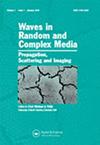A review of recent advance of ship detection in single-channel SAR images
3区 物理与天体物理
Q1 Engineering
引用次数: 0
Abstract
AbstractSynthetic aperture radar (SAR) is an active microwave imaging sensor for high-resolution observation, with the ability of working in all-weather and all-day. Recently, SAR images have been widely used in many fields. Among them, ship detection in single-channel SAR images is a significant part of civilian and military fields. This article first discusses the characteristic of SAR images and the detectability of ships, then summarizes the recent advance of traditional and deep learning-based methods used for ship detection in single-channel SAR images. In addition, the characteristics and existing problems of various methods are discussed and their future development trends are predicted. Aiming at the problems of the large amount of calculation, multi-scale and densely docked ship detection in single-channel SAR images, an improved deep learning-based detection algorithm is proposed, which has achieved excellent performance on the SAR ship detection dataset (SSDD).Keywords: Synthetic aperture radar (SAR)ship detectionsingle-channeldeep learning Disclosure statementNo potential conflict of interest was reported by the author(s).Additional informationFundingThis work was supported by the NSFC Project under Grant 61771142.单通道SAR图像舰船检测研究进展综述
摘要合成孔径雷达(SAR)是一种全天候、全天工作的高分辨率有源微波成像传感器。近年来,SAR图像在许多领域得到了广泛的应用。其中,单通道SAR图像中的舰船检测是民用和军用领域的重要组成部分。本文首先讨论了SAR图像的特点和船舶的可检测性,然后总结了传统方法和基于深度学习的单通道SAR图像船舶检测方法的最新进展。讨论了各种方法的特点和存在的问题,并对其未来的发展趋势进行了预测。针对单通道SAR图像计算量大、多尺度、停靠密集的船舶检测问题,提出了一种改进的基于深度学习的SAR船舶检测算法,该算法在SAR船舶检测数据集(SSDD)上取得了优异的性能。关键词:合成孔径雷达(SAR)舰船探测单通道深度学习披露声明作者未报告潜在利益冲突。本研究由国家自然科学基金面上项目资助,基金号:61771142。
本文章由计算机程序翻译,如有差异,请以英文原文为准。
求助全文
约1分钟内获得全文
求助全文
来源期刊

Waves in Random and Complex Media
物理-物理:综合
自引率
0.00%
发文量
677
审稿时长
3.0 months
期刊介绍:
Waves in Random and Complex Media (formerly Waves in Random Media ) is a broad, interdisciplinary journal that reports theoretical, applied and experimental research related to any wave phenomena.
The field of wave phenomena is all-pervading, fast-moving and exciting; more and more, researchers are looking for a journal which addresses the understanding of wave-matter interactions in increasingly complex natural and engineered media. With its foundations in the scattering and propagation community, Waves in Random and Complex Media is becoming a key forum for research in both established fields such as imaging through turbulence, as well as emerging fields such as metamaterials.
The Journal is of interest to scientists and engineers working in the field of wave propagation, scattering and imaging in random or complex media. Papers on theoretical developments, experimental results and analytical/numerical studies are considered for publication, as are deterministic problems when also linked to random or complex media. Papers are expected to report original work, and must be comprehensible and of general interest to the broad community working with wave phenomena.
 求助内容:
求助内容: 应助结果提醒方式:
应助结果提醒方式:


